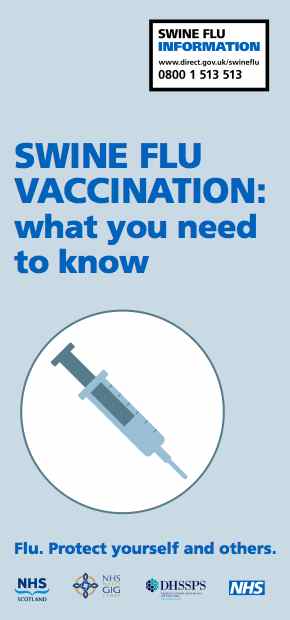As of Friday 30 October 2009
The Director of Public Health has advised that swine flu numbers in Hertfordshire remain steady, with no sharp increase in cases such as those in the North of England. The steep rises in other parts of the country have contributed to a near doubling of cases nationally over the past week.
The Chief Medical Officer, Liam Donaldson issued revised planning assumptions for the next six weeks. These assumptions are based on epidemiological information about how the swine flu virus is behaving and in general, show a more optimistic worst case scenario. Of course, in Hertfordshire our resilience planning has been based on far greater numbers of hospitalisations and deaths, so we continue to be well prepared for flu as it progresses this winter.
He also spoke about the increased demand that swine flu, plus the usual winter pressures will place on the NHS during the next few months. In the areas of the country seeing rapidly increasing swine flu numbers, NHS organisations are now starting to see signs of growing pressure. At the moment this isn’t the case in Hertfordshire, but as winter draws near and the use of NHS services grows, this may change. However he feels that the NHS winter planning processes will be adequate.
Detailed planning for the local swine flu vaccination programme continues. Acute trusts in Hertfordshire expect to have taken delivery of their first supplies of vaccine, and to vaccinate those patients in the priority groups, plus staff starting this week.
GP practices will be receiving their first vaccine supplies this week. The delivery is being managed nationally over a 3 week period. Practices will begin to invite patients when stocks arrive in their practice. This means that most clinics will be running between mid-November and mid-December. Information will be issued through local media to explain to patients in the priority groups that they will receive an invitation letter from their GP and encouraging them to respond.
Antivirals can be obtained locally from:
Boots in St Peter’s Street, St Albans provided you have phoned the flu line and have been given a reference number
Morrisons in Hatfield Road, St Albans provided you have a voucher from your GP

